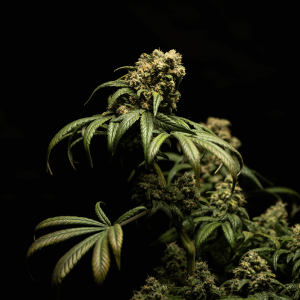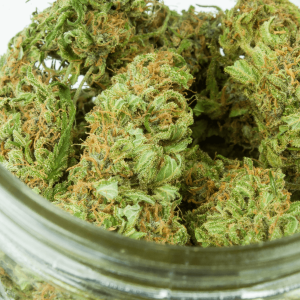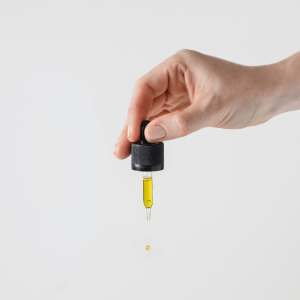Are you searching the depths of the internet in the hope of discovering the most therapeutic cannabinoid? If so, you may be wondering the difference between CBN vs CBD.
If you’re unfamiliar, cannabinoids are a diverse group of chemical compounds that occur naturally in the human body and some plants, namely cannabis. Two different cannabinoids that are getting more attention and joining the high ranks of THC are none other than CBN (cannabinol) and CBD (cannabidiol).
While they come from the same plant and have some similarities, CBN and CBD have different characteristics that affect how they work in our bodies. Knowing the differences between CBN and CBD can help you make informed choices for your health and wellness, so you can get the most out of these natural compounds.
In this blog, we’ll explore the origins, traits, benefits, and uses of CBN and CBD, helping you unlock the potential of these amazing cannabinoids. Let’s go!
What is CBN?
CBN, or Cannabinol, is a compound found in the cannabis plant. Its chemical structure consists of 21 carbon atoms, 26 hydrogen atoms, and one oxygen atom.
It’s a cannabinoid, much like THC (Tetrahydrocannabinol) and CBD (Cannabidiol), but it doesn’t get as much attention.
CBN is unique because it isn’t produced directly by the cannabis plant. Instead, it is the product of THC degradation.
Over time, THC gradually breaks down and oxidizes, especially when exposed to air and UV light, turning into CBN. This process is why aged cannabis tends to have higher levels of CBN.
Potential Effects and Benefits of CBN
CBN is gaining attention for its potential therapeutic effects. Although research is still in its early stages, some studies suggest that CBN may have sedative properties and may help regulate the immune system as well as offer pain relief.
It’s also been studied as a potential treatment for sleep disorders, bacterial infections, and inflammation. However, more research is necessary to fully understand its benefits and potential side effects.

What is CBD?
CBD, short for Cannabidiol, is a natural compound found in the resinous flower of the cannabis plant, known for its long history as a medicinal remedy dating back thousands of years.
Structurally, CBD is a complex molecule belonging to the cannabinoid family, with a unique chemical structure that distinguishes it from other cannabinoids like THC and THCa. CBD is primarily found in the hemp plant, which is essentially marijuana’s federally legal cousin. Hemp contains higher levels of CBD and lower levels of THC, the psychoactive compound responsible for the “high” in cannabis, as well as THCa, the non-psychoactive precursor to THC.
Extraction methods for CBD vary, including CO2 extraction, ethanol extraction, and oil infusion, each providing different levels of purity and efficiency. CBD is renowned for its therapeutic properties, with ongoing research highlighting its potential in treating chronic pain, anxiety, insomnia, and certain types of epilepsy.
Key Differences Between CBN and CBD
The world of cannabinoids is fascinating and always evolving, with two compounds – CBN (Cannabinol) and CBD (Cannabidiol) – capturing significant attention. Despite their similar names, they have important differences that are crucial to understand for both consumers and healthcare professionals.

Chemical Composition
While both CBN (Cannabinol) and CBD (Cannabidiol) are derived from the cannabis plant, they have different chemical compositions.
CBD is directly derived from the hemp plant, a cousin of the marijuana plant. On the other hand, CBN is a byproduct of THC (Tetrahydrocannabinol), the compound known for its psychoactive effects. CBN is formed when THC ages and is exposed to oxygen over time.
Psychoactive Effects
Unlike CBD, which is non-psychoactive, CBN can have mild psychoactive effects. However, the psychoactive effects of CBN are significantly less than those of THC. This means that consuming low doses of CBN won’t produce the “high” commonly associated with cannabis.
Potential Medical Applications
Both compounds have shown promise in medical applications.
CBD is known for its potential benefits in alleviating conditions like epilepsy, anxiety, and chronic pain. CBN, on the other hand, is gaining attention for its potential as a sedative and sleep aid, and for its possible benefits in delaying the progression of conditions such as ALS.
Remember that scientific research is ongoing, and these potential uses require further study.
Similarities Between CBN and CBD
Both CBN (Cannabinol) and CBD (Cannabidiol) hold a number of similarities, despite being individually unique compounds found within the cannabis plant.
Non-Intoxicating Nature
Firstly, both CBN and CBD are non-intoxicating, meaning they don’t produce the ‘high’ typically associated with cannabis consumption. This makes them a preferred choice for individuals who want to benefit from cannabis’ therapeutic properties without experiencing intoxicating effects or any mild psychoactive reactions.
Interaction With The Endocannabinoid System
CBN and CBD also interact with our body’s endocannabinoid system (ECS). The ECS is involved in regulating a wide array of physiological processes including mood, pain sensation, appetite, and sleep. Both CBN and CBD can influence the ECS, albeit in different ways, to potentially provide health benefits.

Limited Side Effects
Lastly, both compounds are known for their limited side effects. Common side effects, such as dry mouth or changes in appetite, are typically mild and transient.
This makes CBN and CBD a potentially safer alternative to traditional prescription drugs for some individuals.
Potential Benefits of CBN
CBN, or Cannabinol, is a lesser-known cannabinoid found in the Cannabis plant that’s gaining attention for its potential therapeutic properties. Here are some of the possible medical benefits now being explored by researchers:
Sleep Aid and Sedative Properties
CBN may have natural sedative effects, which could make it useful for individuals struggling with insomnia or other sleep disorders.
Some preliminary studies suggest that CBN could prolong sleep time and improve overall sleep quality, although more research is needed to confirm these effects.
Pain-Relieving Effects
Another potential benefit of CBN is its analgesic or pain-relieving properties.
While the exact mechanisms are still under investigation, it’s believed that CBN may interact with neural pathways to alleviate pain, potentially providing pain relief even for chronic pain sufferers.
Anti-Inflammatory Potential
CBN may also have anti-inflammatory effects, making it potentially useful in treating a range of conditions characterized by inflammation. Early research suggests that CBN can modulate the immune system’s response, reducing inflammation and potentially aiding in the management of diseases and joint pain conditions such as arthritis and Crohn’s disease.
However, more studies are needed to fully grasp the scope and limitations of CBN’s anti-inflammatory properties.
Potential Benefits of CBD
Unless you live under a rock, you may have seen CBD products popping up everywhere from your local grocery store to the gas station around the corner!
Cannabidiol, better known as CBD, has undoubtedly seen a surge in popularity due to its potential health benefits. Research is still ongoing, but anecdotal evidence and preliminary studies suggest several key benefits of CBD products:
Anxiety and Stress Relief
CBD oil has been widely recognized for its potential to alleviate anxiety and stress. By interacting with the body’s serotonin receptors, which play a pivotal role in mood disorders, CBD products could help keep your mind at ease and promote a sense of calm and tranquillity.
Anti-seizure Properties
Another significant breakthrough in CBD research is its potential anti-seizure properties. Several studies have shown promise in reducing the frequency of seizures, and in some cases, stopping them altogether.
Neuroprotective Effects
CBD oil could also have neuroprotective properties. Researchers are currently exploring a receptor located in the brain to learn about the ways that CBD could help people with neurodegenerative disorders, which are diseases that cause the brain and nerves to deteriorate over time. This includes Alzheimer’s disease, multiple sclerosis (MS), Parkinson’s disease, and stroke.

Choosing Between CBD and CBN
When it comes to choosing between Cannabinol (CBN) and Cannabidiol (CBD), several factors come into play.
First, let’s consider the intended effect: CBN is known for its sedative properties, making it a great option for those struggling with sleep disorders. On the other hand, CBD is renowned for its potential to relieve anxiety, depression, and chronic pain.
Next, take into account the legality and availability in your region. It’s important to note that not all cannabinoids are universally legal or readily available. CBD is often more accessible compared to CBN.
Lastly, always consult with a healthcare professional to understand the right dosage and potential interactions with other medications.
Synergistic Effects When Combining CBD and CBN
Interestingly, when the two cannabinoids are combined, CBD and CBN can create a synergistic effect, enhancing the benefits of both cannabinoids.
This phenomenon, known as the “entourage effect,” suggests that two different cannabinoids used together may have a higher efficacy when used together rather than separately. Therefore, depending on your needs and circumstances, these combinations act as the most beneficial and holistic approach to your wellness journey.
Future Research and Development
Current research on Cannabinoid (CBN) and Cannabidiol (CBD) compounds, both cannabinoids found only in cannabis plants, has mainly focused on their potential therapeutic benefits.
Studies suggest that CBN may have sedative effects, making it a potential candidate for sleep disorders. Meanwhile, CBD has been explored for a wide array of medical conditions, including epilepsy, inflammation, anxiety, and chronic pain.
As we look ahead, there’s so much potential for future advancements and discoveries to shed more light on the therapeutic benefits of these compounds. With the legal landscape around cannabis use changing, researchers are excited about the increased investment in large-scale clinical trials. This will help us gain a deeper understanding of the wide range of uses and potential side effects of CBD and CBN.
Conclusion
In conclusion, both CBD and CBN offer unique benefits, though they share certain similarities.
Both cannabinoids interact with the body’s endocannabinoid system, potentially offering therapeutic benefits. However, the key differences lie in their effects: CBD is non-intoxicating and is well-known for its potential to relieve anxiety and promote relaxation, while CBN is mildly psychoactive and is often touted for its potential sedative effects.
When choosing between CBD and CBN, one should consider their individual needs and desired outcomes. For instance, if you’re looking for potential sleep aid, CBN might be the better choice.
On the other hand, if you’re seeking potential relief from anxiety or stress, CBD may better suit your needs.
Frequently Asked Questions
1. Is CBN more powerful than CBD?
While both CBN (cannabinol) and CBD (cannabidiol) have therapeutic properties, one isn’t necessarily “more powerful” than the other. Instead, they have different effects and potential benefits. CBD is known for its anti-inflammatory and calming effects, while CBN is often praised for its potential as a sleep aid.
2. Does CBN make you sleepy?
Yes, CBN has been shown in some research to act as an effective sleep aid or a sedative effect. This cannabinoid is often used in products designed for sleep, thanks to its potential to help improve sleep quality.
3. Can CBN and CBD be taken together?
Both CBD and CBN can safely be taken together, and in fact, they may even work better when used in conjunction with each other and other cannabinoids, a phenomenon known as the “entourage effect”. This effect refers to the potential for individual cannabis compounds to enhance the effects of others when taken together.
4. Is CBN legal in all states?
The legality of CBN can be somewhat complex, as it depends on where it was derived. CBN derived from hemp (cannabis with 0.3% THC or less) is legal on a federal level in the United States, thanks to the 2018 Farm Bill. However, state laws vary, and some states may have restrictions on cannabinoid products and other cannabinoids. As always, it’s best to check local laws to be sure.

 Rewards
Rewards





